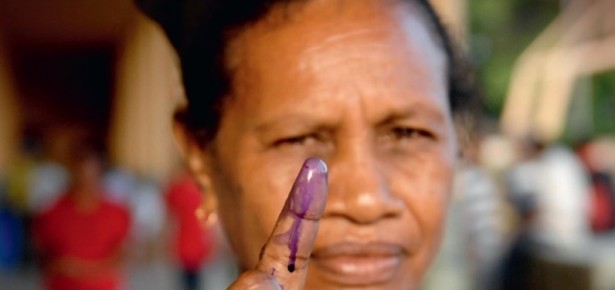
Since the end of the Cold War, the international community has engaged in a series of state building operations in new and post-conflict states. State building is supposed to help states achieve control over their territories, gain the loyalty of their populations, and build durable, centralized institutions that hold a monopoly over the legitimate use of physical force. However, the results of many state building operations have not been promising, as states have remained weak, or in some cases have lapsed into conflict again. These effects have been most obvious in Afghanistan, Iraq and parts of Asia, the Balkans, Africa and the Pacific, where state institutions have struggled to achieve control over, or the loyalty of, their fragmented and divided societies.
How, then, can fragmented and divided societies that are not immediately compatible with centralized statehood best adjust to state structures?
The process of constitution making should be viewed as an important political process
My book, Constitution Making during State Building, argues that the answer to this question rests in part on the role that constitution making can play in state building. Constitution making can play a central role in state building because constitutions create state institutions, provide a legal framework for the exercise of state power, and establish the relationship between the people and their government. This suggests that the process of constitution making should be viewed not only as a technical exercise conducted by constitutional lawyers, but also as an important political process. This also suggests that, if the state is to be a liberal democracy, there should be a high level of public participation in constitution making.
Despite the important role that constitution making can play in state building, scholars and practitioners have lamented that there is not enough research on the impact of constitution making processes. There is even less research on the role that public participation can play in constitution making, and there have been few empirical studies of the benefits of public participation both during the constitution making process and in its aftermath. Accordingly, by using case studies of Timor-Leste and Bougainville (an autonomous region of Papua New Guinea), my book represents a sustained attempt to examine the role that public participation has played during state building and the consequences it has had for the performance of the state. It finds that extensive public participation in constitution making in Bougainville had positive consequences for state building and for Bougainville’s subsequent performance. In contrast, minimal public participation in Timor-Leste initially had negative consequences for state building and contributed to instability and conflict in the new state.
Therefore, my book proposes the idea of a constituent process, whereby public participation in constitution making plays a positive role in state building by providing fragmented and divided societies with the opportunity to resolve their grievances, agree upon common values and norms, and work out how they are going to be best accommodated and adjust to the transition to statehood. Importantly, in fragmented or divided societies in which local socio-political practices and institutions remain highly legitimate and effective, public participation in constitution making can enhance the legitimacy and effectiveness of state institutions by encouraging the emergence of a liberal-local hybrid that achieves syncretism between liberal socio-political practices and local customary ones. My book therefore also represents the first attempt to understand how a liberal-local hybrid approach to state building can emerge during constitution making, and one of the first attempts to conduct a detailed empirical study of the role played by the liberal-local hybrid approach in state building.
Overall, my book suggests that future constitution making processes in fragmented or divided new or post-conflict states should involve a high level of public participation in order to generate positive effects for state building and the longer term performance of the state.
Latest Comments
Have your say!